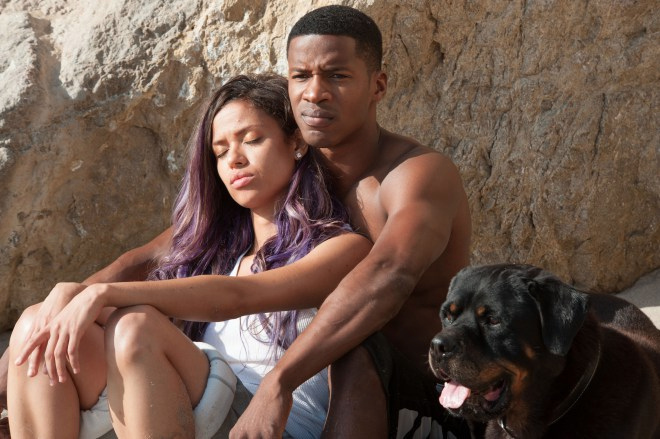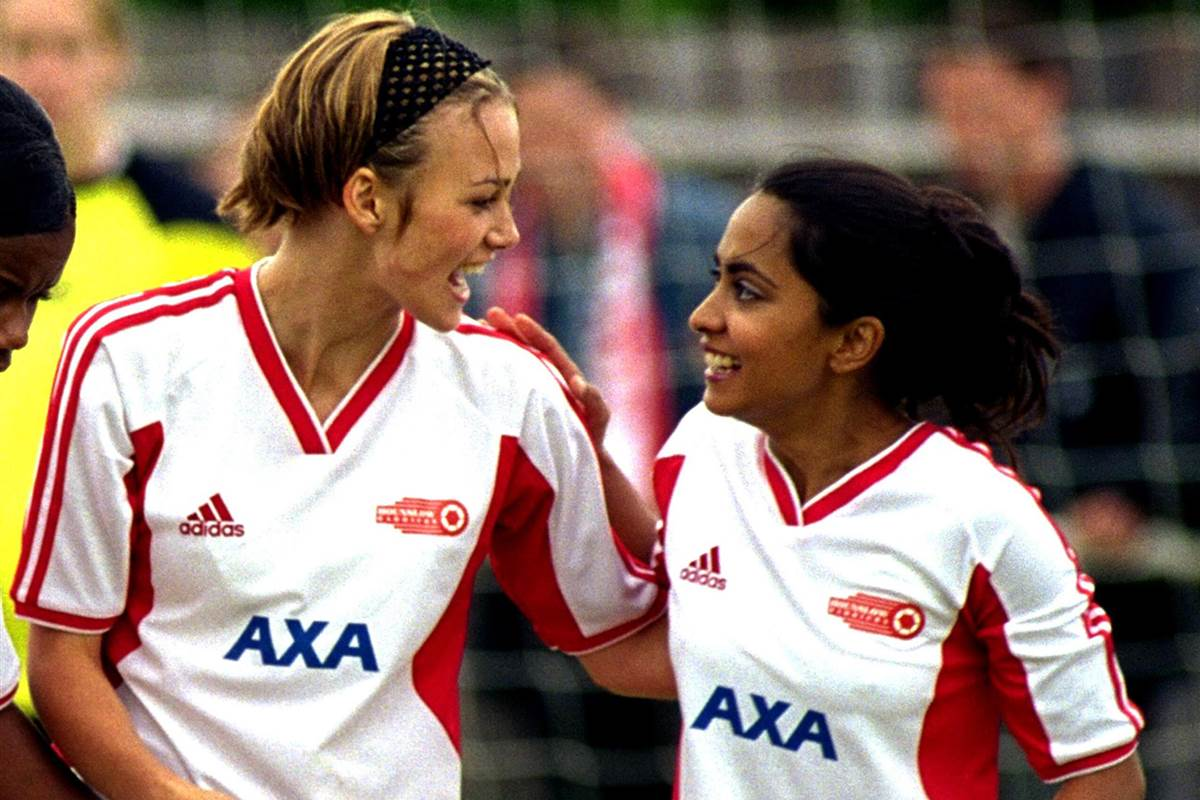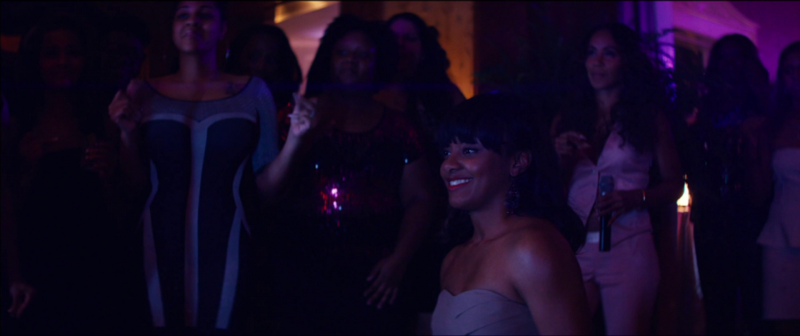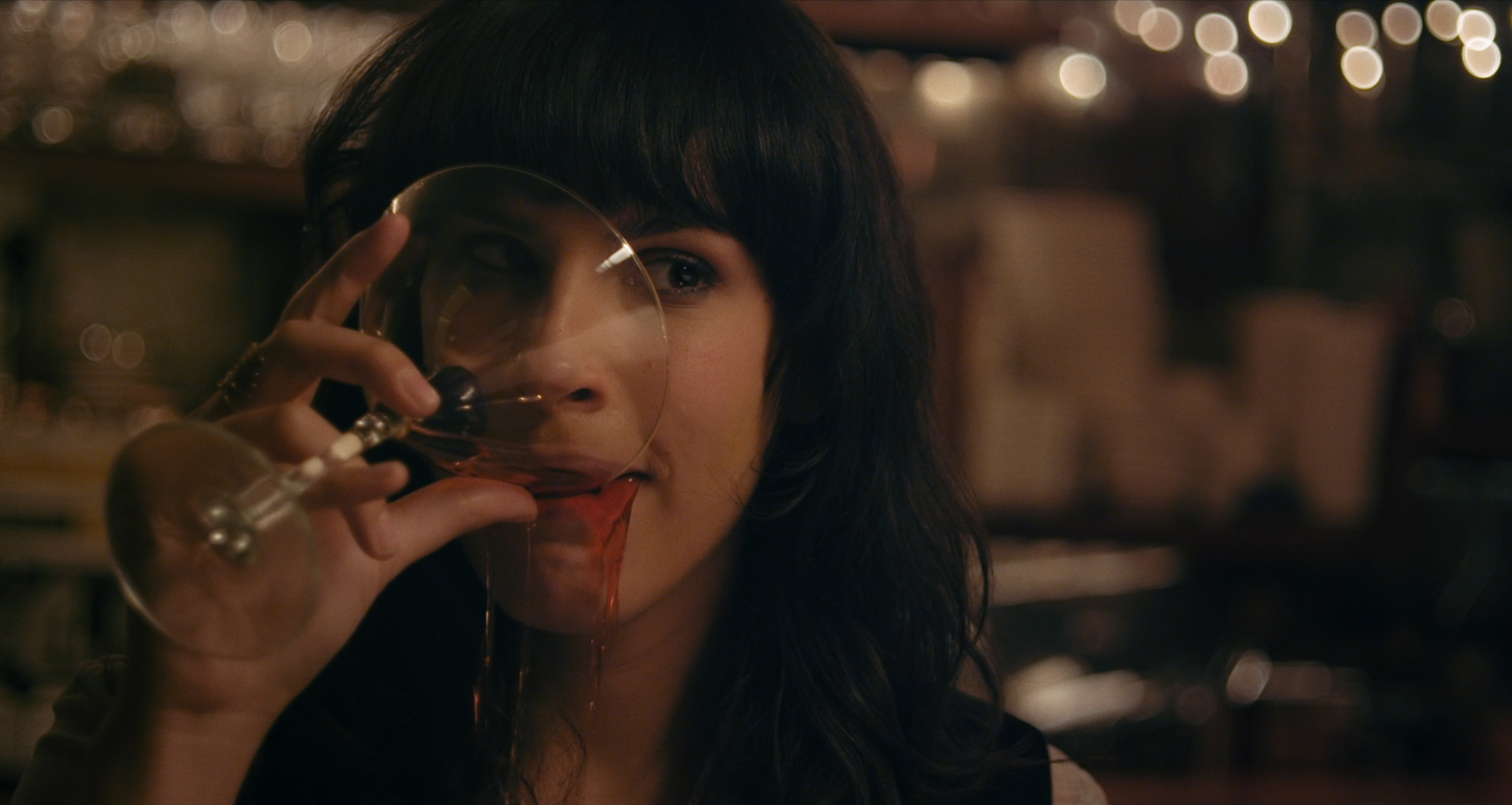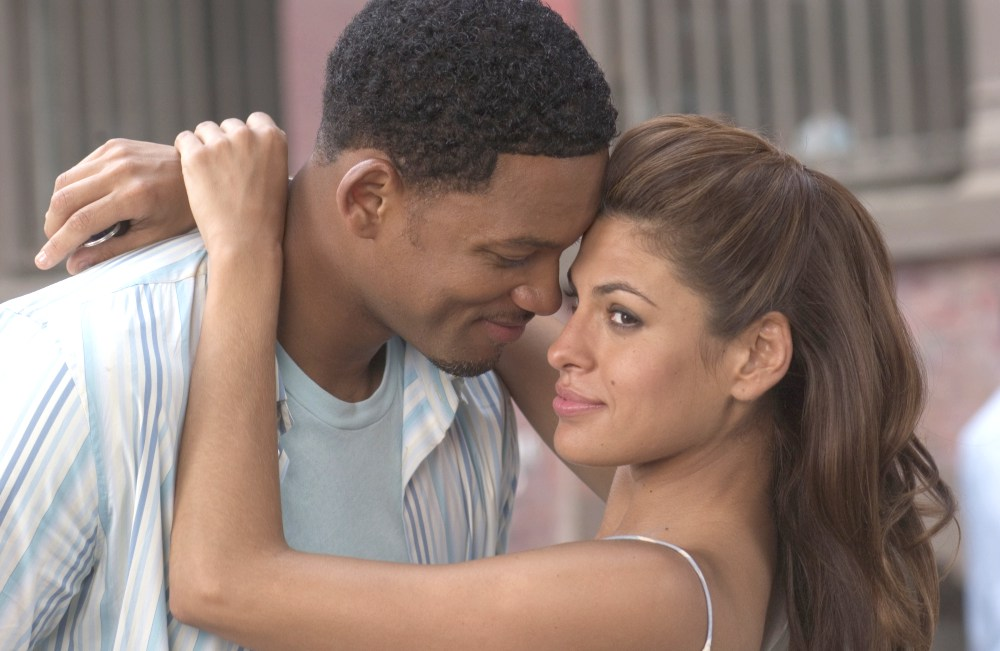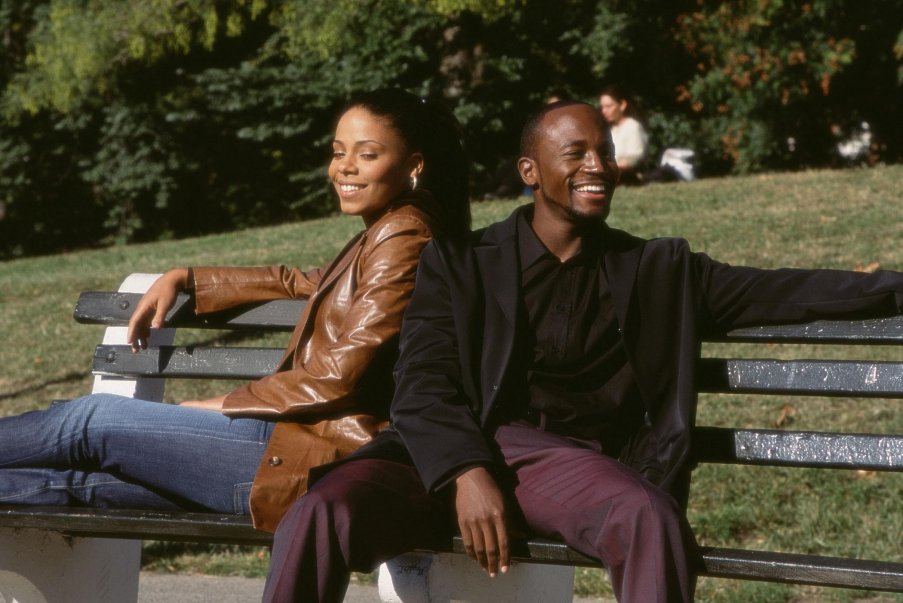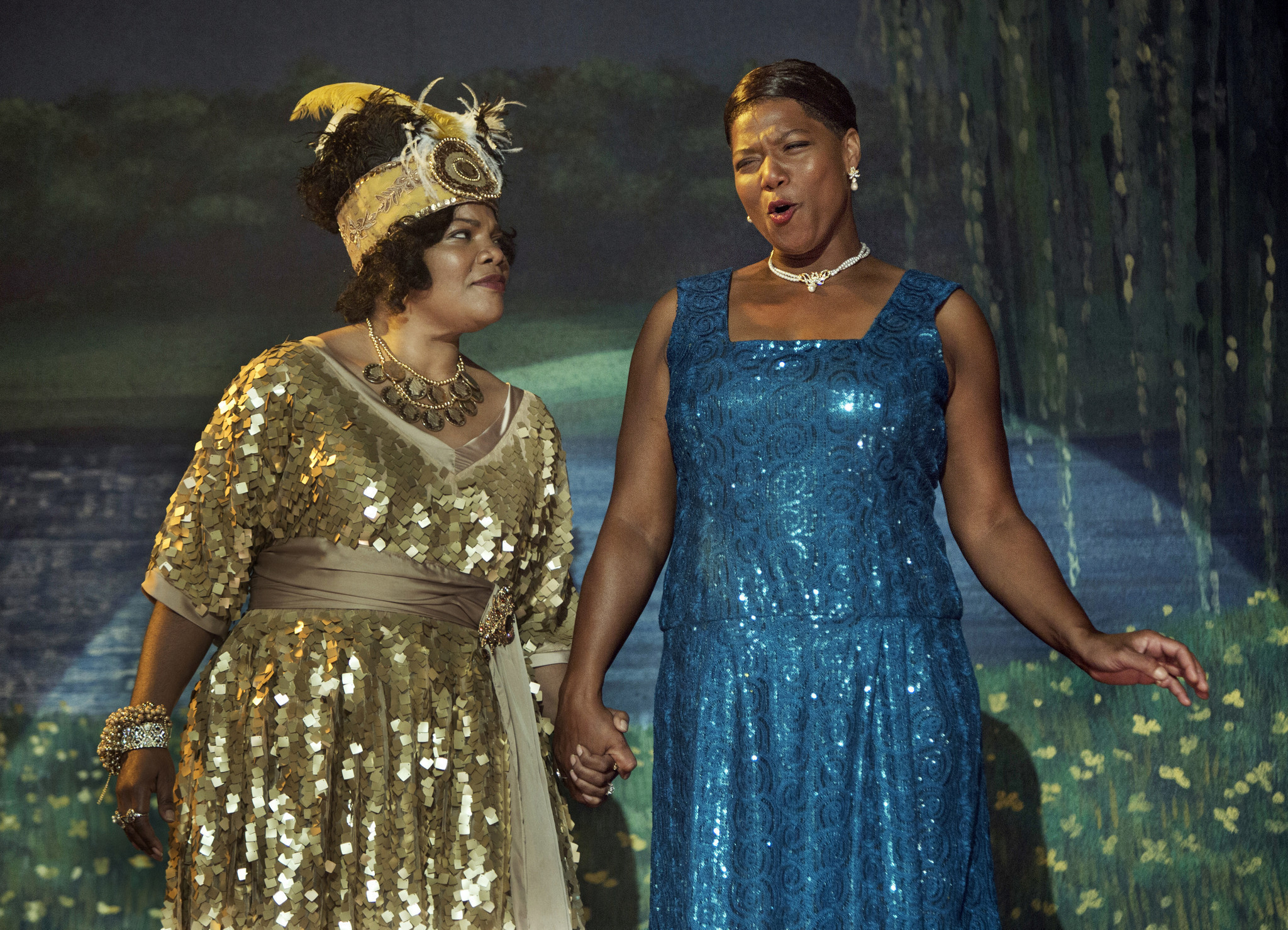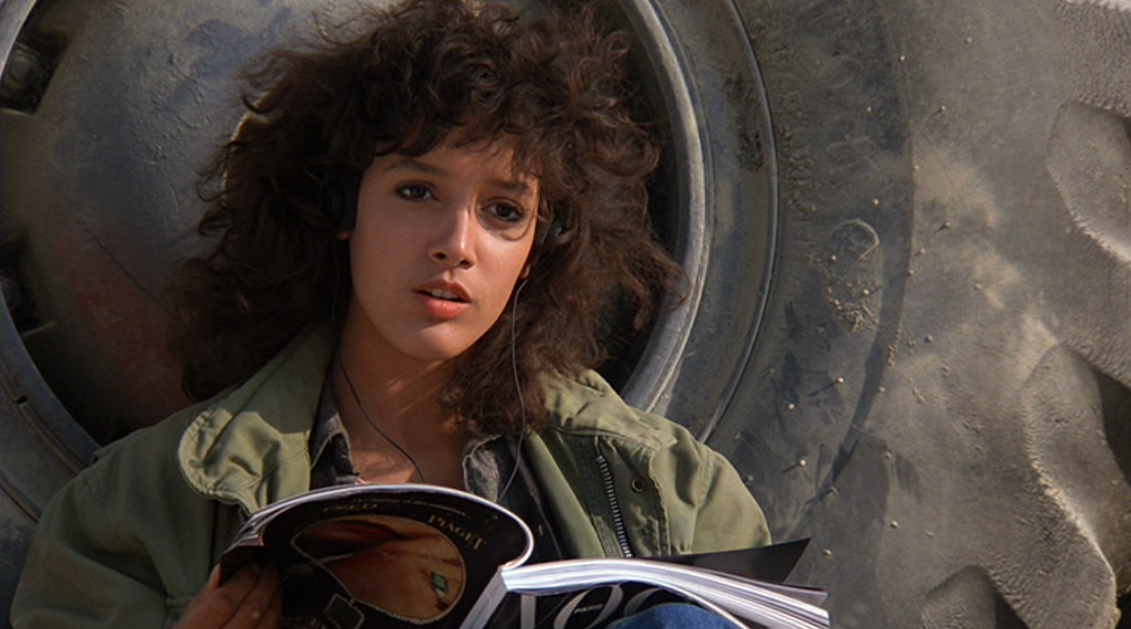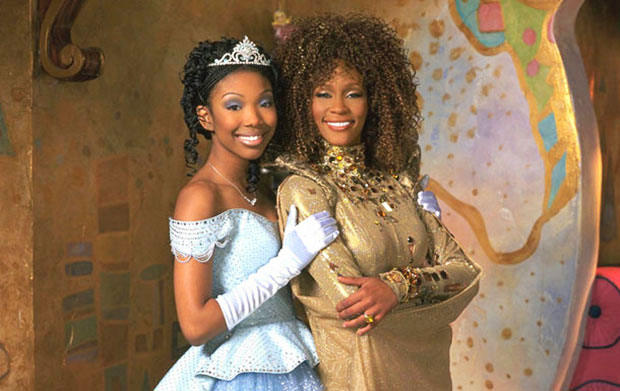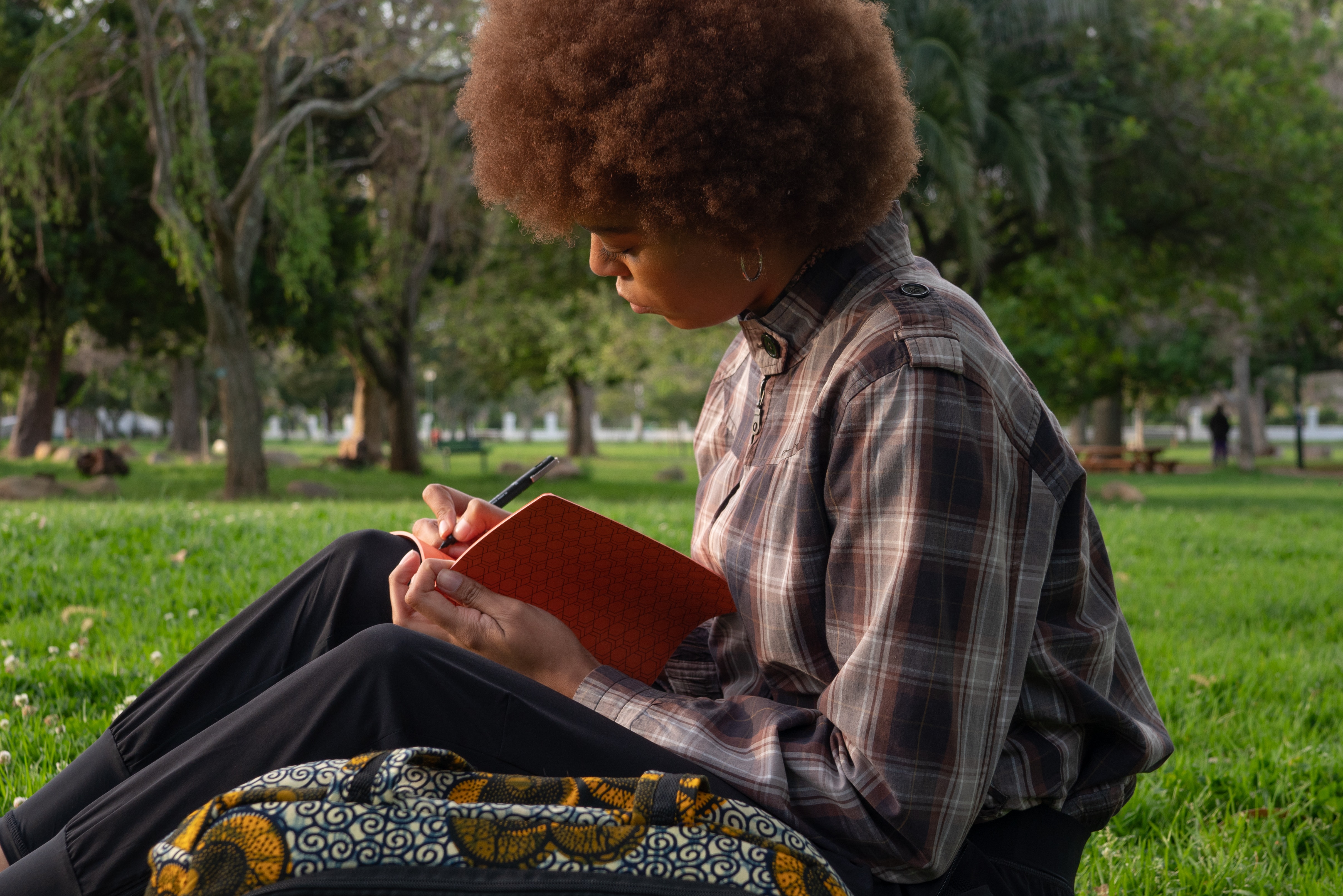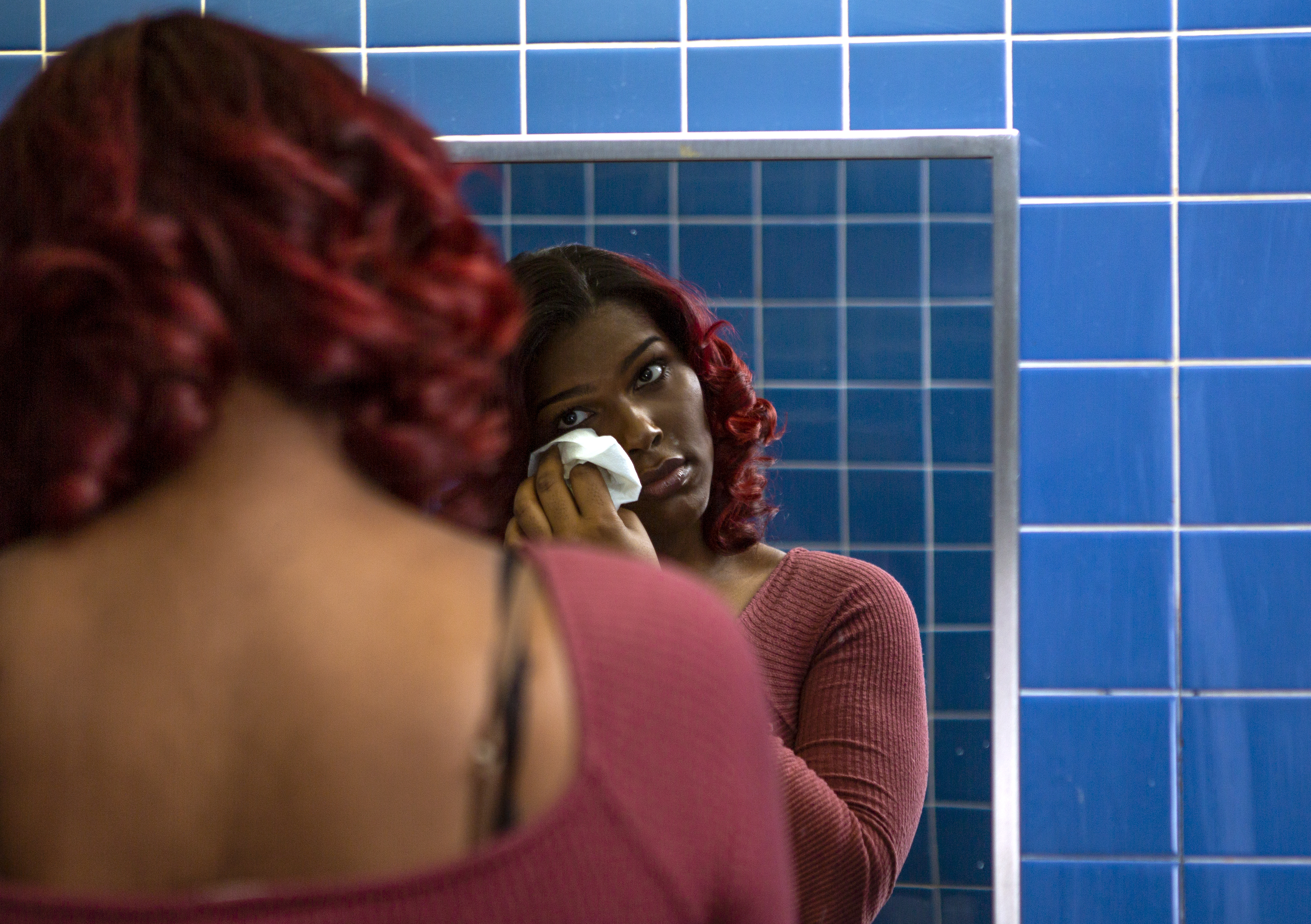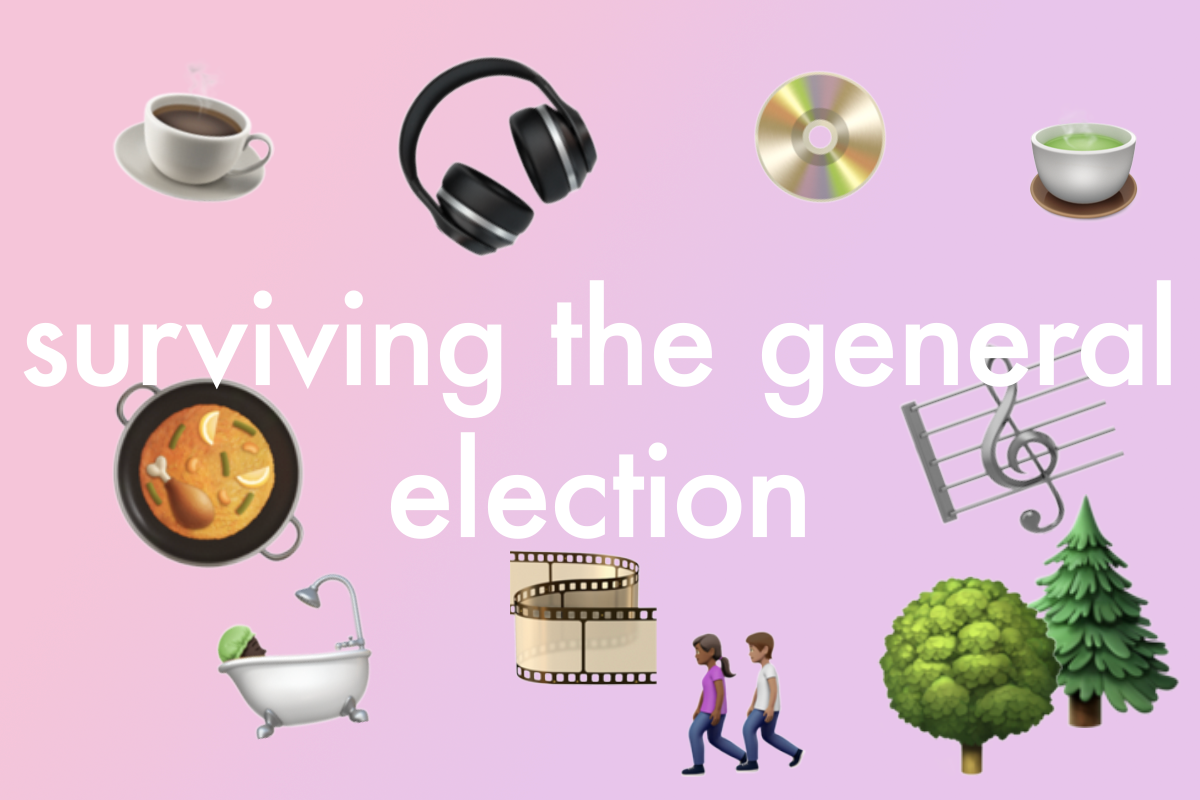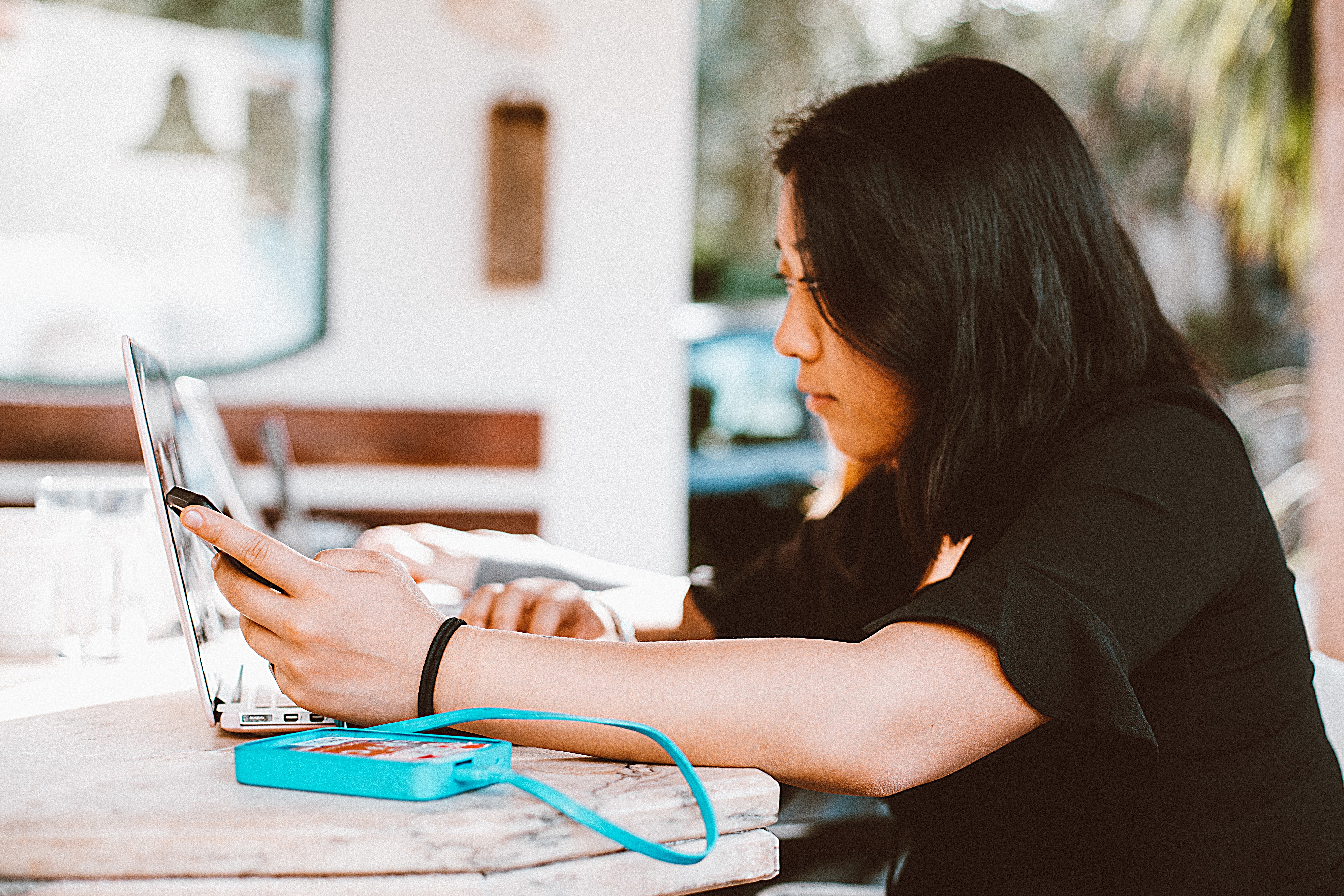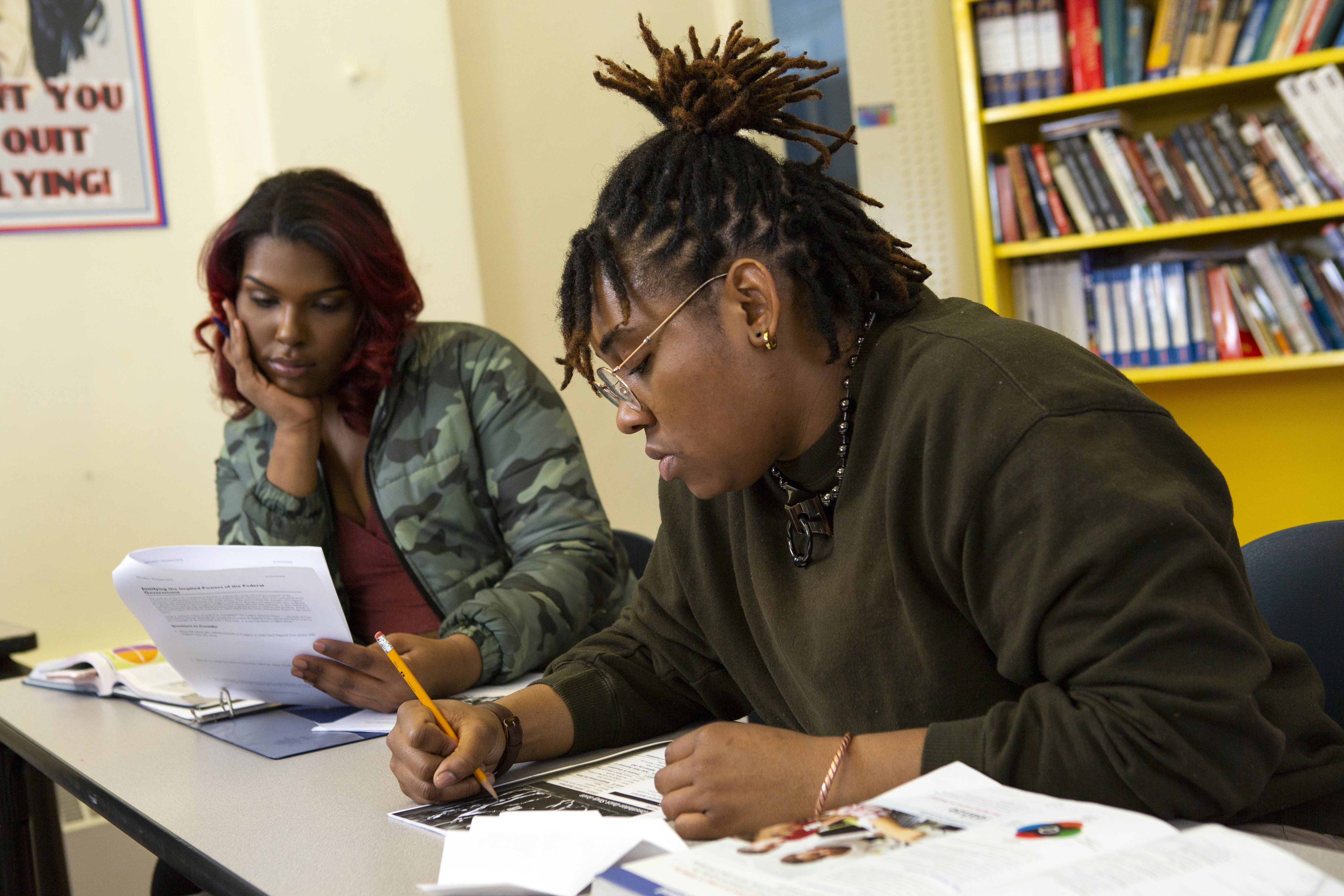
A lot of people I know, myself included, are living in tough times, both personal and political. As people of colour, no matter what is going on in our personal lives, it’s easy to be disparaged when people that look like us are being abused, murdered and oppressed in what feels like left right and centre. In times like these, it can be easy to lose yourself to sorrow. This is why self-care is absolutely vital. To quote the oft-referenced Audre Lorde, self-care is “not self-indulgence, it is self-preservation,” and I truly believe that we all need to care for ourselves in whatever ways make us happiest.
I have many forms of self-care: long walks around London listening to good music, reading Zadie Smith books slowly (I’m a ridiculously fast reader), looking after my skin and, most importantly, watching films. It’s no old news that film-viewing can be frustrating for people of colour, and I feel that this is especially applicable for “self-care films.” I’m talking here about snappy, funny, optimistic films, many of which are often considered low-brow. As much as I love them, there’s only so many times I can watch Clueless and Legally Blonde, and while I could happily watch Meg Ryan “yes, yes, yesss!” in Katz’s Deli daily, sometimes I want to see these lovely, uplifting little films starring people a little more like me. Therefore I’ve put together list of films largely about women of colour that can provide a vital bit of self-care in difficult times.
(Please note: Creed is not on this list because I’m pretty sure I’ve mentioned it in every single edition of film club and I’m starting to sound like a broken record. But you know what you need to do; watch Creed!)
Beyond the Lights
Beyond the Lights is vital in a way that few “black” films I’ve seen are. It’s about two black lead characters, but it’s not a film about their blackness. It’s never really suggested that problems that characters face in the film are due to their race. They’re more down to the fact that leads Noni (Gugu Mbatha-Raw) and Kaz (Nate Parker) are from completely different worlds. Telling a Bodyguard-esque story of a troubled pop-star who falls in love with a police officer after he saves her life from an attempted suicide attempt. Director Gina Prince-Bythewood gives the film a light touch, making it an easy and enjoyable watch whilst still dealing with serious issues. Mental health, for example, is a big theme in this film. Things are left unsaid but it’s quite clear that Noni suffers with mental health issues. I struggle to think of many other films that address black women and mental health. Prince-Bythewood never chastises Noni for this, and shows her taking the steps in order to get better, both on her own and through a healthy relationship. If you need something that’s fun, romantic and stars two drop-dead gorgeous leads (there’s a scene where Nate Parker takes his top off that’ll have you simultaneously creasing with laughter and gasping from the sheer beauty), this is the perfect film for you.
Bend it Like Beckham
A staple of my childhood. For those unfamiliar, Bend it Like Beckham tells the story of Jess, caught between a traditional Sikh household and the desire to become a footballer. Along the way, Jess finds solidarity and female friendships in the form of the Hounslow Harriers, led by a surprisingly un-irritating Keira Knightley. The main love interest comes in the form of The Worst White Man ever, played by Jonathan Rhys-Meyers (after Jess is called a racial slur, his way of comforting her is to say, “of course I understand racism, Jess. I’m Irish!”). It’s a film that’s dated, yes, but it serves as a perfect piece of nostalgia for the early 2000s, and a reminder that you don’t have to be limited by tradition, gender or race if you really want to achieve something.
Tangerine
Tangerine is a strange film because of the way it was marketed. It made media headlines because the film was shot entirely using iPhones, which somewhat stole attention away from the fact its leads were two black transgender women. In a way, this is a wonderful thing, because why shouldn’t a film like this be normalised, instead of treating marginalised characters as a novelty? The film is a new breed of a film, and not just because it was filmed with smartphones. Hands-free technology means the film’s plot can race along with the one liners its protagonists drop, and there are more events, misunderstandings and dramas than some of the very best screwball comedies. The film’s stars, Kiki Rodriguez and Mya Taylor are both extraordinarily gifted comic actresses, but it’s the film’s final shot that lingers in my head. Despite all the bullshit, bitching and stupid men, it’s the bond of black female friendship that these two friends cherish the most. It’s certainly my greatest takeaway from the film.
Magic Mike XXL
Speaking of telling women they’re beautiful. Look, I can argue this one out, okay? Yes, this film is about men, and largely white men at that, but halfway through the film something glorious and unexpected happens. Channing Tatum and his boys make a pit stop on their last ride to a stripper convention and arrive at Domina, a members-only strip club run by Rome (Jada Pinkett-Smith), that caters to a largely black female audience. The first thing we see is a muscular black man stripping for a fat black woman. I sighed a sigh when I saw this scene, remembering a scene in the first Magic Mike film where a character picks up a fat woman and injures his back. Not here. The woman, one of a number of black and fat women (there’s a woman in the film wearing shorts under her dress to stop chub rub because Magic Mike writers apparently know this is a thing women do!) is completely validated as a character. Her sexual desires are celebrated and never laughed at. Women of colour, fat women and queer women are loved, respected and celebrated in this film, just as they should be.
Appropriate Behaviour
For all of us women of colour who have had to sit through white women gushing about how relatable Sex and the City or Girls are whilst turning a blind eye to its lack of diversity, salvation comes in the name of Desiree Akhavan. Following the “girl having quarter life crisis trying to figure out what to do with her life” storyline we’ve seen a lot of in recent years, Akhavan writes, directs and stars in the film as Shirin, a bisexual Iranian woman dealing with a breakup, a new job, and trying to maneuver through New York’s various dating scenes. As well as the usual romantic tropes, the film also takes a close look at family, particularly what it can be like to be different from your family members and have to live with secrets. While Shirin spends a great deal of the film seemingly going nowhere, it’s a delight taking the journey with her.
Hitch
Hitch is, to put it simply, a masterpiece. There’s no other way I can describe this film. Like Bend it Like Beckham, it’s a film that was a big part of my childhood, but it’s more than that. Were this world a fair one, it would be included in all lists of the “best rom-coms ever made” (isn’t it time to get Annie Hall off those lists?). So many parts of Hitch have the potential to become iconic, from its mid-noughties soundtrack (including Amerie’s 1 Thing, as timeless now as it was then, and Heavy D and the Boyz’ Now That We Found Love), suave performance from Will Smith, and natural chemistry between him and Eva Mendes. There are classic scenes, such as the unbearably awkward story about “The Butcher of Cadiz”, and Smith getting waved on cough syrup. It is also, unfortunately, the film that introduced Kevin James of Paul Blart: Mall Cop to the world, but every film has to have a downside.
Brown Sugar
As you may have guessed from the above, I love a rom-com. I love the predictability of them, where professions and meet-cutes and actors and soundtracks change, but plots rarely do. So you’ll imagine my delight in discovering a rare breed of film, the black rom-com, best popularised by The Best Man, Love Jones and the like. The creme de la creme of this genre, in my humble opinion, is Brown Sugar, a film that combines two giants of the genre, Sanaa Lathan and Taye Diggs (previously starring together in The Best Man), with an amazing hip hop soundtrack. Lathan is editor-in-chief of a music magazine, Diggs works in A&R at a record label. Obviously they’re in love with each other, obviously they’ll get there, but watching how it will happen is part of the fun. A bonus of the film: while Lathan’s Sidney spends a good portion of the film pining over Diggs’ Dre, she doesn’t just waste the film wasting away from unrequited love. Just like in another great Lathan film, Love and Basketball, she gets on with it and focuses on her career. At the end, as it should be, she’s allowed both. Another bonus of the film? Mos Def and Queen Latifah both star.
Bessie
The end of Bessie does a great thing. It inverts your expectations and gives, even though you know what is still to come, a happy ending to a woman who met a very sad end. Bessie Smith met an untimely end at the age of just 43, and was buried with an unmarked grave for a whopping 33 years, saying so much about how a black woman’s star can shine so bright then fade into obscurity. But Dee Rees lovely little HBO film (the type of understated film that naturally doesn’t get a cinematic release or award nominations) ends with Smith, played by Queen Latifah looking forward and wondering what her future holds. “What’s over that next hill?” she reflects to her lover. Though bad things happen to Smith throughout the film, and surely more are yet to come, she’s expectant and ready to face the future. This is what is beauty about Bessie; it shows just how resilient and beautiful black women are. Not only does the film show the beauty of the unsexualised black female body, in a scene in which Latifah sits, completely naked, in front of a mirror removing her makeup, it shows beauty in the acting of Queen Latifah (give her good roles, give her Oscars!) and the beauty of the female friendship between Smith and Monique’s Ma Rainey. While most biopics tend to end on a down note, Bessie looks forward, a welcome and much-needed voice of positivity.
Flashdance
I love me some eighties dance films, and while Dirty Dancing is the best of the bunch, it’s also white as hell. Fame is the inverse, but so depressing (why did my dad let me watch that film at 11 years old? Not appropriate at all). Flashdance strikes a nice balance between the pair of them. I’m not saying that it’s necessarily a good film, because it’s not (it’s actually quite problematic), and the now iconic status of its dance numbers outweighs its very slight plot. What it is, however, is a big studio dance film that inexplicably has a mixed race star, and also doesn’t mention (as far as I can remember) its protagonist’s race at all. Therefore, similarly to Beyond the Lights, the struggles that Alex goes through in the film are not to do with her blackness. Of course, in true dance movie fashion, Alex powers through and performs an iconic dance number and gets into dance school because dreams can come true. Eighties dance movies are a great source of self-care for me, so one with a protagonist that actually looks like me is a great joy.
Cinderella
When I decided to write this feature, I turned to my fellow gal-dem writers for advice on which films to pick, and the one with the biggest response was this one. I’ll confess, it’s been many years since I’ve watched it, but Rodgers and Hammerstein’s version of Cinderella, starring Brandy as Cinderella and Whitney Houston as Fairy Godmother, was a big part of mine and many other black girls’ childhood. The film has “colour-blind, multiracial casting” as its Wikipedia page calls it, meaning that the film’s Filipino Prince Charming has a black mother (Whoopi Goldberg) and a white father (Victor Garber), because why the fuck not? The songs still bang (I listened to In My Own Little Corner as motivation whilst writing this), and Whitney Houston is the fairy godmother we all need and deserve. Also, a Theatre Historian referred to it as a “hideous desecration” of Cinderella, and as we all know, things that old white people hate are always amazing.

